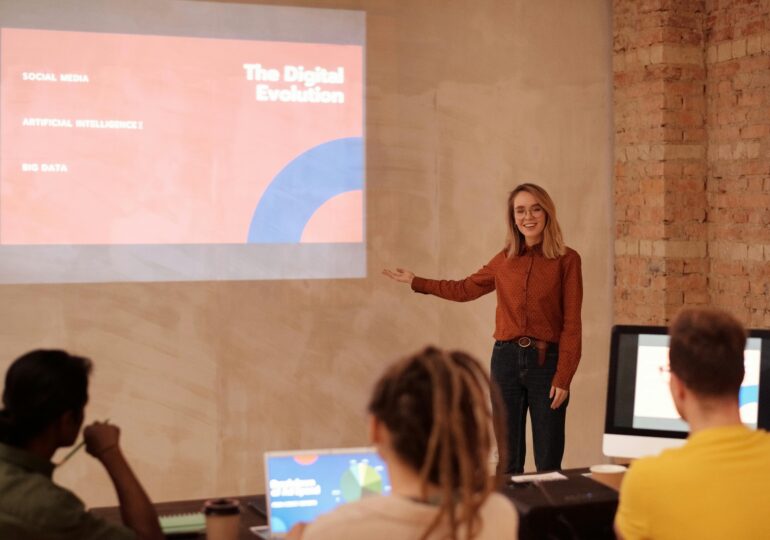Artificial intelligence is beginning to reshape the labor market faster than experts anticipated. A Microsoft study shows that some professions can be almost entirely taken over by algorithms, while others remain completely outside the risk.
Writers, journalists, and programmers are among the most exposed, while laborers, technicians, and healthcare assistants appear to be the best protected.
"You've been replaced by a machine"
Joe Turner, a 38-year-old freelance writer, lost 70% of his clients in just two years after they switched to chatbots. "It's a betrayal," he says. "You put your soul into your work, and one day you're replaced by a machine. You always think it won't happen to you," says Turner, quoted by Sky News.
According to a study conducted by Microsoft in July 2025, based on 200,000 conversations with the Co-Pilot chatbot, up to 85% of a writer's tasks can be fulfilled by AI. The analysis, almost unnoticed, shows that artificial intelligence can do 90% of the work of historians and programmers, 80% of the activities of salespeople and journalists, and 75% of the tasks of DJs or data analysts.
The 40 "most exposed" professions to AI
Microsoft estimated the overlap percentage between human tasks and those that a chatbot can perform. The result: from historians and mathematicians to sales agents and PR specialists, many professions can be almost completely automated.
Profession - Automation Percentage
- Historians - 98%
- Mathematicians - 91%
- Proofreaders - 91%
- Automated programmers - 91%
- Writers and authors - 90%
- Statistic assistants - 85%
- Sales representatives - 85%
- Technical editors - 84%
- Journalists - 83%
- Telephone operator - 80%
- Editor - 80%
- Political analysts - 77%
- DJs and radio presenters - 77%
- Data scientists - 77%
- Web developers - 73%
- Customer service representatives - 72%
- Tourism and ticket agents - 71%
- Marketing analysts - 71%
- Business professors - 70%
- Personal financial advisors - 69%
- Economics professors - 68%
- Management analysts - 68%
- Telephone switchboard operator - 68%
- Telemarketers - 66%
- Advertising agents - 66%
- Archivists - 66%
- PR specialists - 63%
- Product promoters - 64%
- Models - 64%
- Office assistants / clerks - 62%
- Hosts / hostesses - 60%
"If we look at these jobs in 3-5 years, it is very likely that they will have been completely replaced," warns an AI consultant with over a decade of experience.
Researcher Xinrong Zhu from Imperial College London confirms: "We are living in a historic turning point."
Klarna, Microsoft, and Amazon set the tone of change
The Swedish company Klarna reduced its staff by 40% after its internal chatbot took over the work of 700 employees.
Microsoft laid off 15,000 people while investing £69 billion in AI data centers, and Amazon announces that it will reduce its workforce as it "increases efficiency thanks to AI."
However, some experts argue that the phenomenon is rather a pretext: "There are macroeconomic effects - energy costs, taxes, contributions - that better explain the decline in employment," says the same consultant.
The 40 least affected professions
On the other hand, the Microsoft study also shows occupations where AI can take over only 10% or less of tasks. These are mainly physical, technical, or medical professions that require skill and human presence.
Profession - Automation Percentage
- Nurses / orderlies - 0%
- Floor polishers - 0%
- Pilot operator (construction) - 0%
- Railway workers - 0%
- Metal casters - 0%
- Water treatment plant operator - 0%
- Bridge and lock guards - 0%
- Dredge operator - 0%
- Prosthodontist (dental prosthesis specialist) - 1%
- Gas station operator - 1%
- Oil and gas industry worker - 1%
- Asphalt / paving worker - 1%
- Forestry equipment operator - 1%
- Boat operator - 1%
- Roofing assistant - 2%
- Roof installer - 2%
- House cleaners / maids - 2%
- Road workers - 3%
- Dishwashers - 3%
- Bricklayers / finishers - 3%
- Industrial forklift operator - 3%
- Surgical assistants - 3%
- Hazardous substance removal workers - 4%
- Painters / decorator assistants - 4%
- Tire repairers - 4%
- Packaging machine operator - 4%
- Medical equipment preparers - 4%
- Fire supervisors - 4%
- Ophthalmic technicians - 4%
- Orofacial surgeons - 5%
- Naval engineers - 5%
- Laboratory assistants (blood analysis) - 6%
- Medical assistants - 7%
- Embalmers - 7%
- Massage therapists - 10%
A repeating history
Economist Fabian Stephany from the University of Oxford reminds us that every technological revolution has produced the same fears. The "Spinning Jenny," the spinning machine invented by James Hargreaves in 1764, left weavers without jobs but created thousands of positions in factories. Ford's assembly line or ATMs generated more work, not less.
"We can't compete anymore"
Audio producer Christian Allen, with two decades of experience, lost £7,000 contracts in one year. "AI produced a perfect radio spot for £12. No one will pay £1,000 for a human voice."
Between catastrophe and opportunity
Artificial intelligence can destroy careers but also create new ones. A consultant quoted by Sky News Money tells how a landscaping company used ChatGPT for personalized offers, and a pension fund saved "thousands of hours" by automatically analyzing documents.

